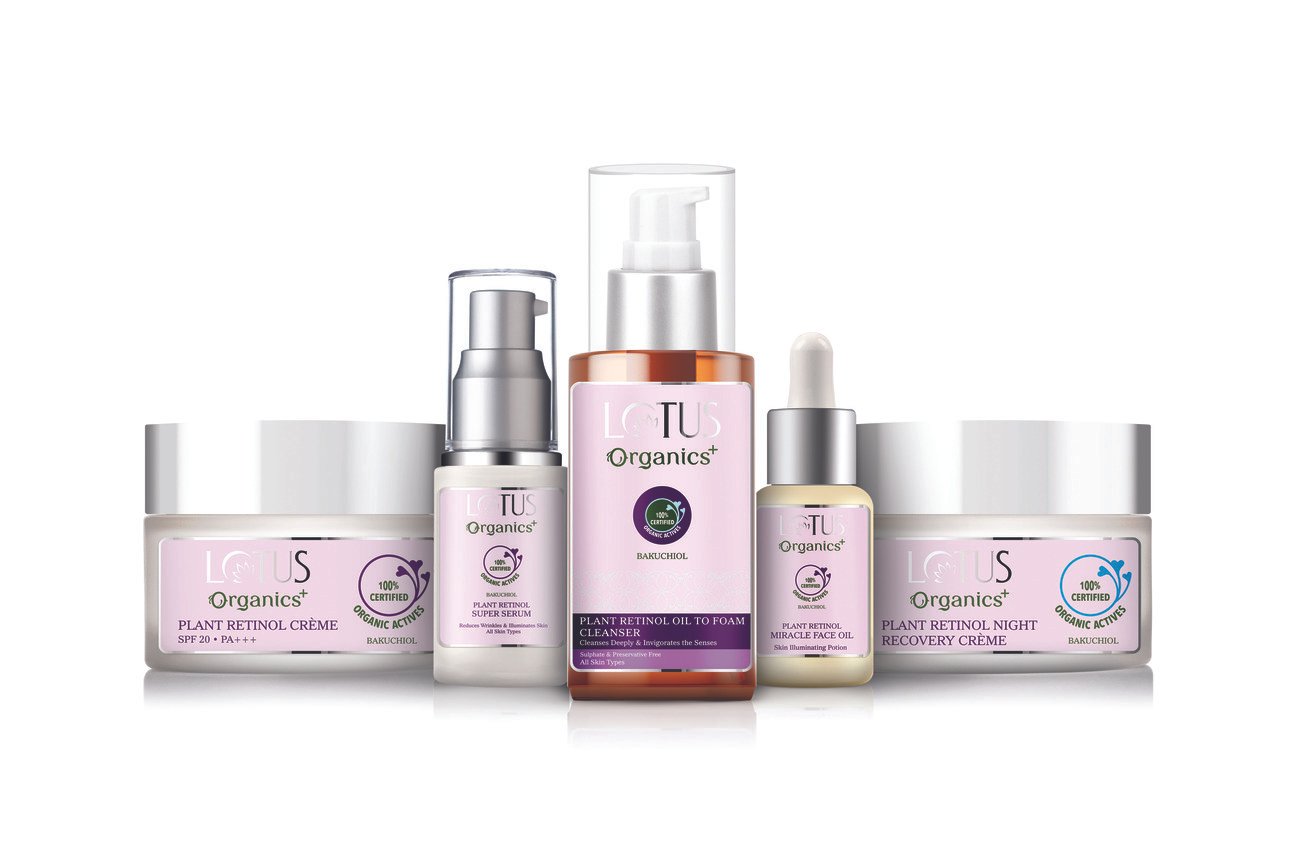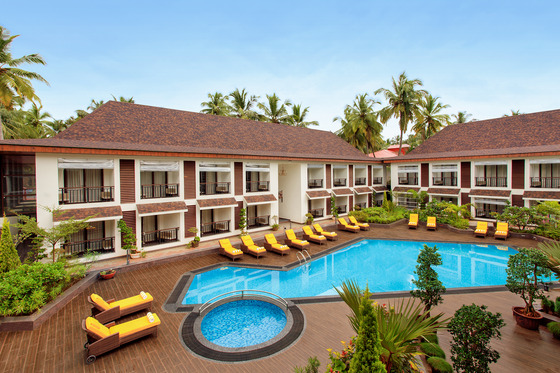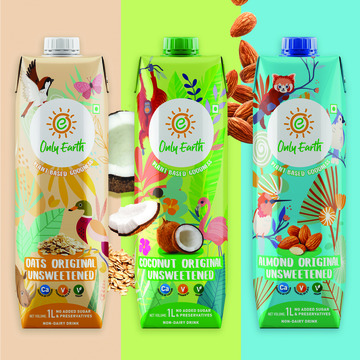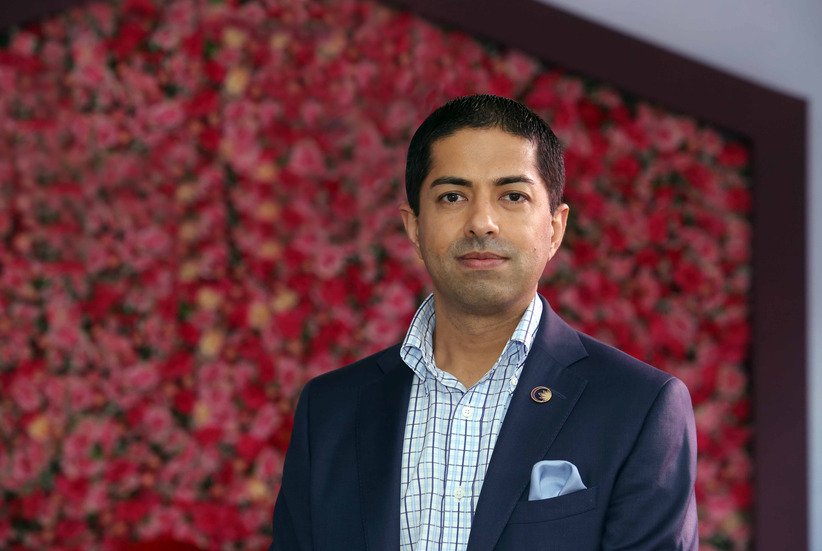 Lotus Herbals is India’s pioneer beauty brand synonymous with green, clean, ethical, and natural products in skincare, haircare, and makeup for over 28 years now. A manufacturer and marketer of quality natural cosmetics, the brand provides a retail and professional range of over 400 well-researched, targeted, and exciting products with a harmony of the ancient wisdom of the Vedas, natural ingredients, and 21st Century Technology. Nitin Passi, Joint Managing Director, Lotus Herbals, believes that the future of Lotus Herbals will revolve around increasing the market share and have an omnichannel approach focusing on the brand’s retail footprint expansion in a quick span of 6 months and increasing DTC revenue shares. In conversation with TMM, he talks about the significant change in the beauty and skincare industry, celebrities association, and much more.
Lotus Herbals is India’s pioneer beauty brand synonymous with green, clean, ethical, and natural products in skincare, haircare, and makeup for over 28 years now. A manufacturer and marketer of quality natural cosmetics, the brand provides a retail and professional range of over 400 well-researched, targeted, and exciting products with a harmony of the ancient wisdom of the Vedas, natural ingredients, and 21st Century Technology. Nitin Passi, Joint Managing Director, Lotus Herbals, believes that the future of Lotus Herbals will revolve around increasing the market share and have an omnichannel approach focusing on the brand’s retail footprint expansion in a quick span of 6 months and increasing DTC revenue shares. In conversation with TMM, he talks about the significant change in the beauty and skincare industry, celebrities association, and much more.
Lotus Herbals is close to its three decades journey in beauty and skincare. How do you look at the journey?
Being manufacturers and marketers of quality and non-toxic natural cosmetics, we’ve come a long way. With over 6 powerful beauty brands and more than 15 sub-brands, Lotus Herbals has retained its essence of being an innovative home-grown beauty conglomerate. The company’s brands and products are sold in more than 16 countries. I believe that brand evolution happens when you are agile & have an ambitious adventure-seeker aptitude. Meticulous planning has yielded success; however, the foundering at some hurdles have paved the way for colossal learnings. For us, it has always been about
‘people over profit’. From 2019 onwards, our journey has been more inclined towards acquisitions and investments apart from nurturing our current business with an Omnichannel future-ready approach.
Over the years, what is the most significant change you have seen in the beauty and skincare market?
The beauty trends are rapidly changing with the emergence of the digital-first model to keep up with the ‘always-connected consumer’. The transition of ‘unrealistic beauty standards to ‘beauty that looks like me’ has been seamless. Beauty trends are becoming more gender-inclusive, gravitating towards holistic beauty with Ayurvedic principles, empathic behaviour, conscious consumerism, healthy escapism through virtual product experiences and storytelling, science and traditions in harmony with each other, and mindfulness in beauty.
What is exciting for us are several new niche categories sprouting in the beauty industry, some of which can be scalable in the foreseeable future. We have drawn a strategy of either owning such businesses or partnering with passionate founders who need mentoring and access apart from the capital to realise their ambitions.
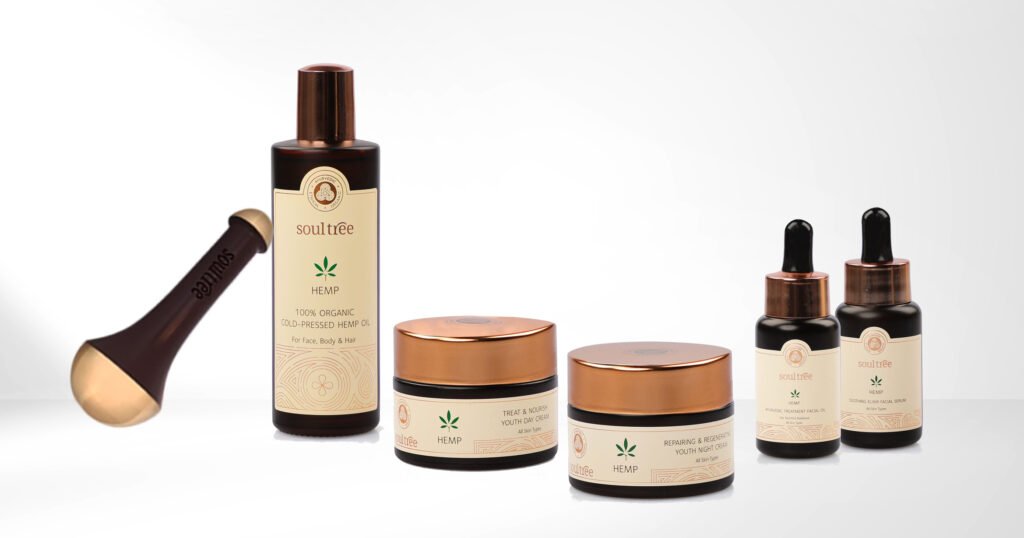 Tell us something about the brand philosophy of Lotus Herbals?
Tell us something about the brand philosophy of Lotus Herbals?
Lotus Herbals has been India’s pioneer beauty brand synonymous with green, clean, non-toxic, ethical, and natural products in skincare, haircare, and makeup for three decades now. An ISO 9001 (2000) certified company, Lotus Herbals, follows strict manufacturing processes as per GMP (Good Manufacturing Practices). All production systems and Lotus Research Labs are subject to stringent quality checks to ensure that the highest quality products exceed international standards. We produce products that enhance, protect and heal skin, hair, and body. We, at Lotus Herbals, believe in natural ingredients supported by modern science instead of chemical-based and animal cruelty. For us, the values of innovation and transparency are non-negotiable! We have been faithful to our promise, and we strive to do so in the future too!
What makes Lotus Herbals stand apart from the contemporaries?
Lotus Herbals has a legacy of innovation in high-quality natural and non-toxic products, which sets us apart from our contemporaries. Our products comply with global quality norms and have all the prestigious certifications. All our packaging is recyclable, and all Lotus brands only use sustainable and eco-friendly ingredients. Lotus has survived and thrived due to its resilience, sustainable practices, and human-centric approach despite the ever-changing volatile market.
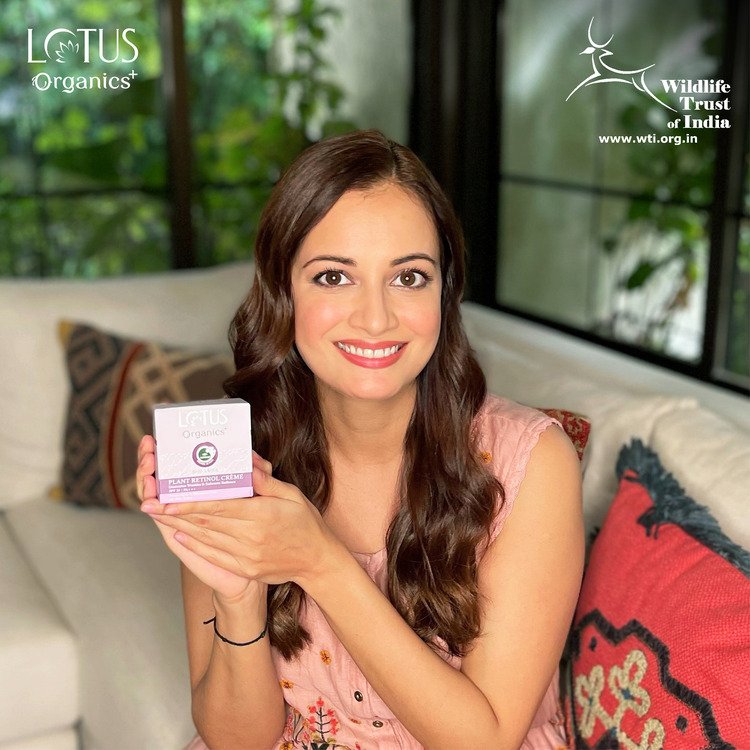 Actresses like Malaika Arora and Dia Mirza are associated with the brand. How far do celebrities help build the brand, or products are the real stars?
Actresses like Malaika Arora and Dia Mirza are associated with the brand. How far do celebrities help build the brand, or products are the real stars?
A quality product is definitely the hero, but meaningful celebrity collaboration is a win-win situation for any brand. Celebrities and brands directly collaborate only if they believe in each other’s values, ethics, and endorsed products. People follow only those celebrities with whom they resonate their feelings, and thus we automatically reach out to our target audience through these meaningful collaborations. For instance, Lotus Herbals Youth Rx symbolises green beauty, and our scientifically researched natural product line redefines the anti-ageing category. We are glad that we have such a stunning celebrity endorser like Malaika Arora, who resonates with the brand’s values. Similarly, during the year-long association with Dia, the brand Lotus Organics+ aims to cement its commitment to eco-friendly practices and pledges to improve sustainability. Lotus organics+ is a brand committed to a non-toxic lifestyle and emphasizes the benefits of living life the organic way.
Lotus Herbals also forayed into the dermaceutical segment in 2021. What can we expect in this segment in 2022 and the future too?
Indian Cosmetics Products Market is projected to grow at a CAGR of 4.23% during 2020-2025. In 2021, we forayed into the Dermaceutical segment with Fixderma. With our strategic planning & marketing expertise, we aim to enhance the global footprint for Fixderma and FCL and capture significant market share within the next five years as part of our long-term growth strategy.
Dermaceuticals have acclaimed its most entrancing position in skincare products across the globe within the last couple of years. The industry shall continue to reimagine itself while driving growth and boosting value with further segmentation based on performance cosmetics, dermaceuticals, and quasi-drugs abound in the marketing of personal care. It was primarily an unregulated market, but it has attracted pharma and cosmetic giants and scientists to work in this segment post-pandemic.
In 2020, the brand acquired SoulTree; what was the idea behind the step, and what can we expect in 2022 from this association?
The idea behind this step was to ride on the emerging wave of Ayurveda’s growth post-pandemic and expand our brand portfolio with a mid-sized acquisition. With a promise of ‘beauty with a purpose”, SoulTree brings beauty, wellness, and urban unwind culture to the table. It also celebrates Lotus’s legacy, which started three decades ago from the traditions of healing, beauty, and Ayurveda. Life did come to a full circle for us.
The brand’s primary goal for 2022 is to introduce retail expansion through the concept of rooted luxury in the most sustainable & environment-friendly demeanour. After opening India’s first solar-powered beauty and wellness EBO in Galleria Gurgaon in 2021, we plan to cover all the major metro cities of India with our brick and mortar presence and launch innovative products with prestigious products COSMOS and BDIH accreditations.
There has been a sudden rise in demand for Ayurvedic and organic skincare products. What do you think has led to this change?
The Ayurveda market in India was valued at ₹300 billion in 2018 and is expected to reach ₹710.87 billion by 2024, expanding at a compound annual growth rate (CAGR) of 16.06 percent. The Ayurveda market also saw mammoth growth post-pandemic with a spurting 50-90% boost because people started believing in mindful choices for organic, therapeutic and slow beauty with care for the environment. The post-pandemic world has also witnessed unprecedented consumer habits with an inclination towards organic and Ayurveda lifestyles. The definitions might have changed, but such conversations have always been a part of the Lotus Brand ecosystem, given our strong roots as a green, clean, sustainable, and ethical brand.
How do you see social media as a marketing tool for the brand?
In 2021, 4.48 billion people were using social media. Social media gives you an opportunistic window into the largest addressable market online and helps build brand voices. Gone are those days when creating iconic brands with a cult following took half a century to drive brand loyalty. With a new boom in Digital native D2C brands, social media has emerged as the most functional real-time mechanism to reach new audiences with engaging content, helps you build trust authority and, also to show your brand personality. In short, hyper-personalization and multiple touchpoints in social media ensure that the marketing efforts have real-time feedback and performance-driven measuring metrics.
With a presence in 16 countries, what are the plans for Lotus Herbals?
Lotus Herbals has a 27% share in a 2000 crore premium beauty industry. Our plans will revolve around increasing our market share and building brand loyalty. Our strategy will now have an omnichannel approach focusing on our retail footprint expansion in a quick span of 6 months and increasing DTC revenue shares. We also intend to expand our reach to 20,000 salon and spa doors within the next financial year. Our global ambitions shall revolve around reaching out to 32 countries through our home-grown and partner brands. We also plan to look into IoT-based applications, mobile-first approach, innovative product categories, social commerce, and reach out to millennials, Gen-Z, and digital native audiences through our DTC brands.
As our pledge towards sustainability, we intend to focus on carbon-neutrality and extend our CSR initiatives in continuum to our existing humanitarian framework.

